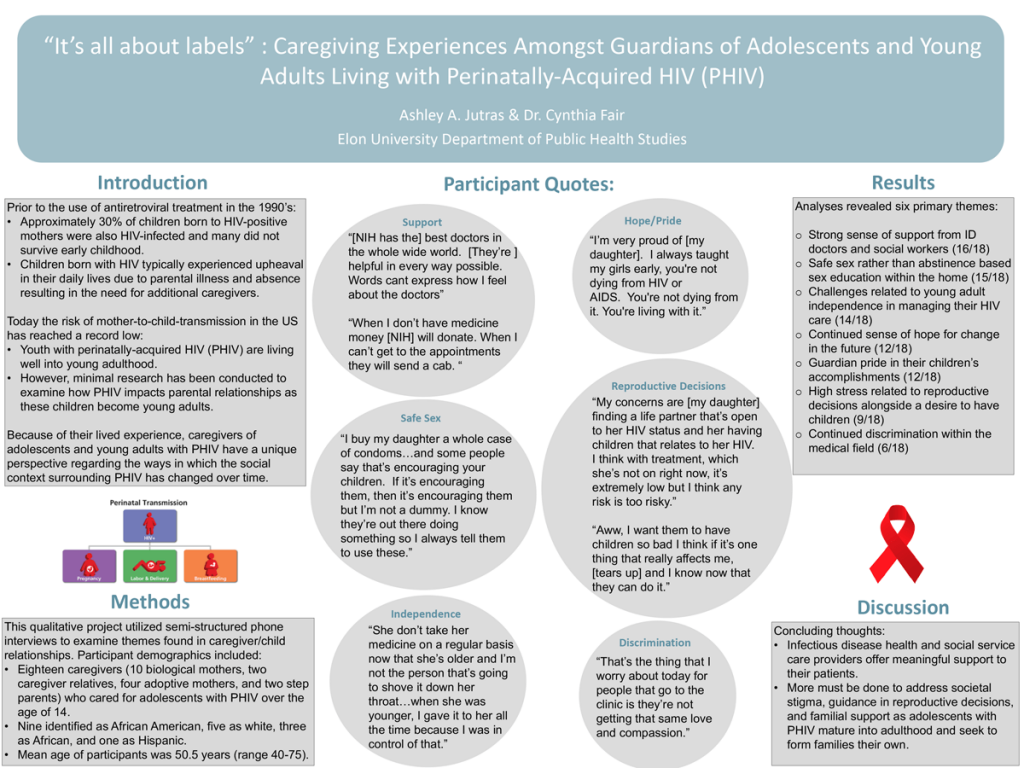Ashley Jutras
Class of 2020
- Human Service Studies
- Public Health Studies

“It’s all about labels”: Caregiving experiences among guardians of adolescents and young adults living with perinatally-acquired HIV
Project Mentor:
- Cindy Fair, professor of public health studies and human service studies, Watts/Thompson Professor and chair of the Department of Public Health Studies
Project Abstract
Prior to the advent of antiretroviral treatment in the early 1990’s, approximately 30% of children born to HIV-positive mothers were HIV-infected, many of whom did not survive early childhood. Children born with HIV typically experienced upheaval in their daily lives due to parental illness and absence resulting in the need for additional caregivers. Today the risk of mother-to-child transmission in the US has reached a record low and youth with perinatally-acquired HIV (PHIV) are living well into young adulthood. While there has been extensive research related to the social impacts PHIV has on individuals, little recent research has examined their broader family system. Because of their lived experience, caregivers of adolescents and young adults with PHIV have a unique perspective regarding the ways in which the social context of HIV has impacted parenting relationships. This qualitative exploratory project examines themes found in caregiver/child relationships among 18 caregivers (17 females) who cared for adolescents and young adults with PHIV over the age of 14. Participants included ten biological mothers (all HIV-positive), two caregiver relatives (maternal aunt and older sister), four adoptive/foster mothers, one step-mother, and one step-father. Nine identified as African American, five as white, three as African, and one as Hispanic. Mean age of participants was 50.5 years (range 40-75). Transcripts from semi-structured interviews focused on parenting experiences were coded for emergent themes. Analyses revealed several common themes including a strong sense of pride related to their children’s accomplishments, a sense of hopefulness in the reduction in HIV-related stigma, and the utilization of doctors and social workers as forms of support. However, they also noted continued HIV-related discrimination in the medical field and felt that their children were still judged based upon the labels associated with HIV. Participants explored aspects of parenting an adolescent with PHIV and indicated focus on safe-sex as compared to abstinence-based discussions, fear of HIV transmission to future generations, and challenges in allowing their adolescent to self-manage their illness. Considering these unique challenges felt by caregivers, collaboration among social workers and healthcare professionals to identify support strategies will benefit both caregivers and adolescents and young adults with PHIV.
 Download Project Presentation
Download Project Presentation